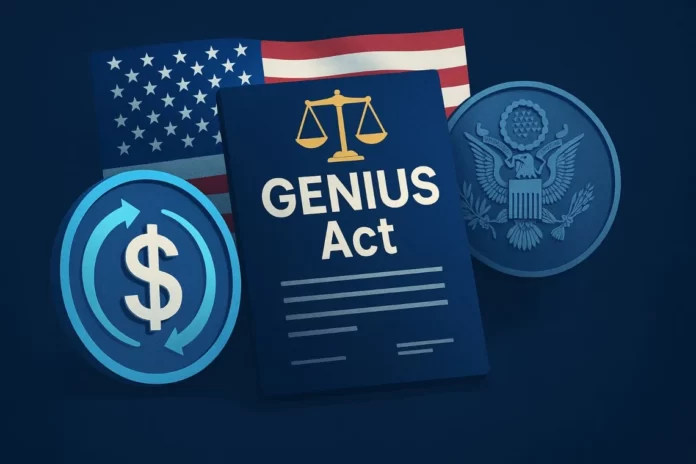The U.S. Senate on Tuesday passed a bill to regulate U.S.-dollar-pegged cryptocurrency tokens, also known as stablecoins, in a key step toward federal oversight of digital assets.
The bill, called the GENIUS Act, passed with bipartisan support in a 68-30 vote.
The House of Representatives, which Republicans control, must now pass its version of the bill before it can go to President Donald Trump for approval. If signed into law, the bill would require stablecoins to be backed by liquid assets such as U.S. dollars or short-term Treasury bills.
Issuers would also need to disclose the makeup of their reserves every month.
Stablecoins are a type of cryptocurrency designed to hold a fixed value, often pegged to the U.S. dollar, and are widely used in the digital asset market for transferring funds between tokens. The crypto industry has pushed for clear federal rules for years, arguing it would support broader adoption and safer use of stablecoins.
Trump has shown support for the sector and raised funds from crypto firms during his campaign. His administration has aimed to pass stablecoin legislation before August.
Bo Hines, head of Trump’s Council of Advisers on Digital Assets, said the White House views the bill as a priority.
Last year, the House passed a version of the stablecoin bill, but the Senate, then under Democratic control, did not act on it. Some Democrats remain critical of the bill, warning it may allow big tech companies to issue stablecoins and could lack strong anti-money laundering measures.
Tensions around Trump’s crypto activities, including a meme coin and a crypto company partly owned by him, have added political pressure to the legislative process. Democrats have raised concerns about conflicts of interest, though the White House says Trump’s assets are held in a trust managed by his children.
The bill could still be amended in the House. The Conference of State Bank Supervisors has called for changes, warning that the bill expands federal power over money transmission without proper oversight from state regulators.




